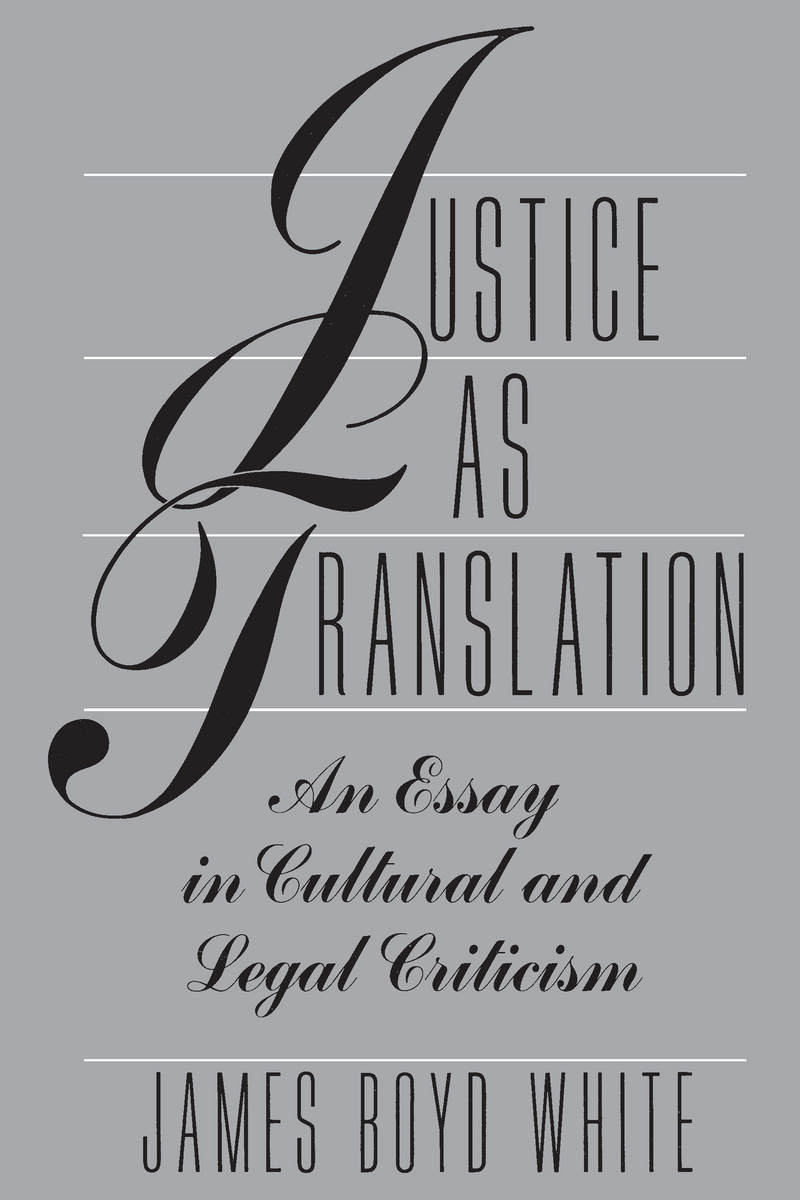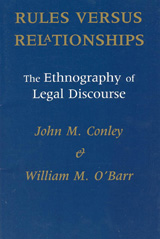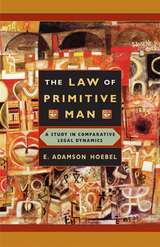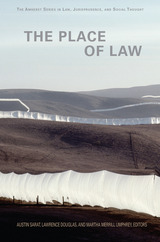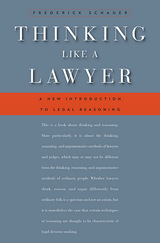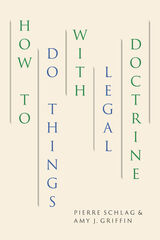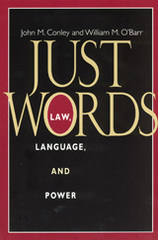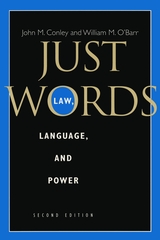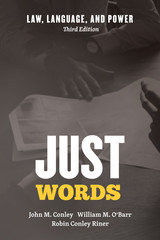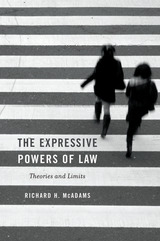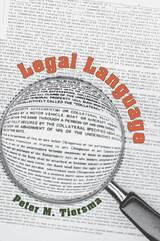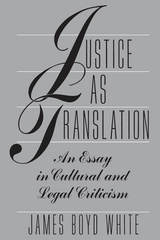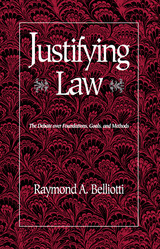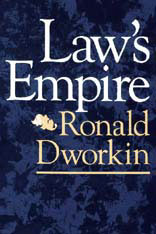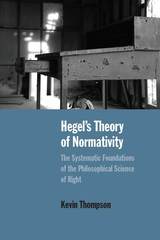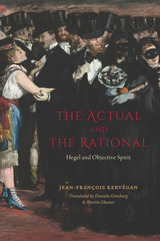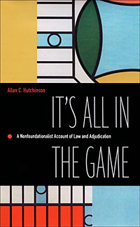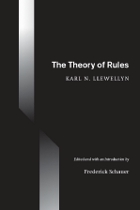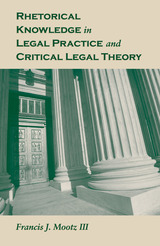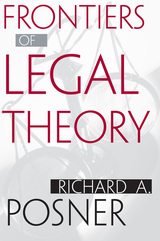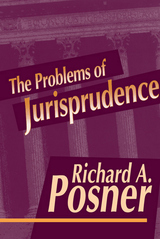Justice as Translation: An Essay in Cultural and Legal Criticism
University of Chicago Press, 1990
Paper: 978-0-226-89496-6 | Cloth: 978-0-226-89495-9
Library of Congress Classification K213.W49 1990
Dewey Decimal Classification 340.014
Paper: 978-0-226-89496-6 | Cloth: 978-0-226-89495-9
Library of Congress Classification K213.W49 1990
Dewey Decimal Classification 340.014
ABOUT THIS BOOK | TOC | REQUEST ACCESSIBLE FILE
ABOUT THIS BOOK
White extends his conception of United States law as a constitutive rhetoric shaping American legal culture that he proposed in When Words Lose Their Meaning, and asks how Americans can and should criticize this culture and the texts it creates. In determining if a judicial opinion is good or bad, he explores the possibility of cultural criticism, the nature of conceptual language, the character of economic and legal discourse, and the appropriate expectations for critical and analytic writing. White employs his unique approach by analyzing individual cases involving the Fourth Amendment of the United States constitution and demonstrates how a judge translates the facts and the legal tradition, creating a text that constructs a political and ethical community with its readers.
"White has given us not just a novel answer to the traditional jurisprudential questions, but also a new way of reading and evaluating judicial opinions, and thus a new appreciation of the liberty which they continue to protect."—Robin West, Times Literary Supplement
"James Boyd White should be nominated for a seat on the Supreme Court, solely on the strength of this book. . . . Justice as Translation is an important work of philosophy, yet it is written in a lucid, friendly style that requires no background in philosophy. It will transform the way you think about law."—Henry Cohen, Federal Bar News & Journal
"White calls us to rise above the often deadening and dreary language in which we are taught to write professionally. . . . It is hard to imagine equaling the clarity of eloquence of White's challenge. The apparently effortless grace of his prose conveys complex thoughts with deceptive simplicity."—Elizabeth Mertz, Yale Journal of Law and the Humanities
"Justice as Translation, like White's earlier work, provides a refreshing reminder that the humanities, despite the pummelling they have recently endured, can be humane."—Kenneth L. Karst, Michigan Law Review
"White has given us not just a novel answer to the traditional jurisprudential questions, but also a new way of reading and evaluating judicial opinions, and thus a new appreciation of the liberty which they continue to protect."—Robin West, Times Literary Supplement
"James Boyd White should be nominated for a seat on the Supreme Court, solely on the strength of this book. . . . Justice as Translation is an important work of philosophy, yet it is written in a lucid, friendly style that requires no background in philosophy. It will transform the way you think about law."—Henry Cohen, Federal Bar News & Journal
"White calls us to rise above the often deadening and dreary language in which we are taught to write professionally. . . . It is hard to imagine equaling the clarity of eloquence of White's challenge. The apparently effortless grace of his prose conveys complex thoughts with deceptive simplicity."—Elizabeth Mertz, Yale Journal of Law and the Humanities
"Justice as Translation, like White's earlier work, provides a refreshing reminder that the humanities, despite the pummelling they have recently endured, can be humane."—Kenneth L. Karst, Michigan Law Review
See other books on: Cultural | Essay | Justice | Translating | Translation
See other titles from University of Chicago Press
